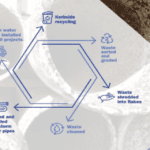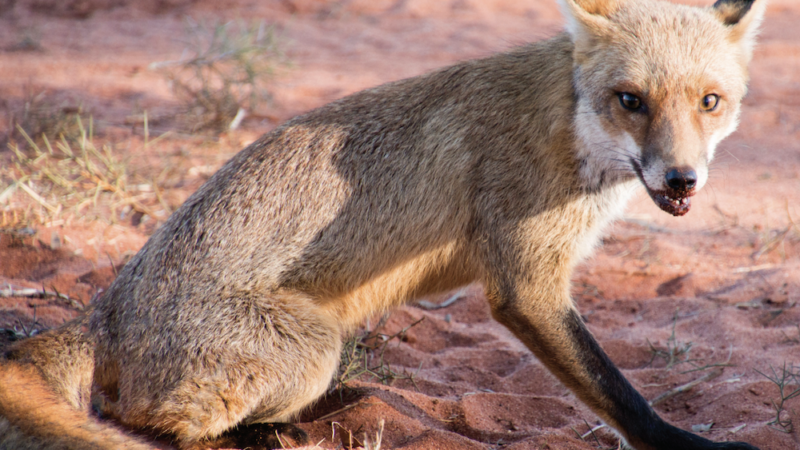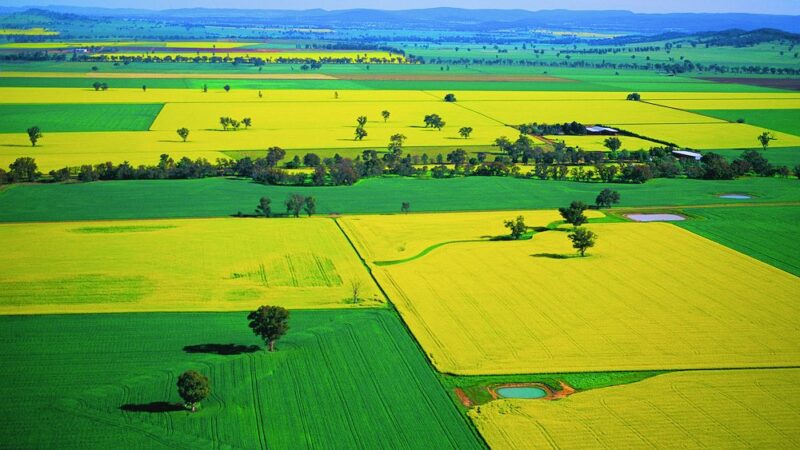It has now been 130 years since Tom Roberts, a renowned Australian artist who held…
Illegal cactus present a prickly problem
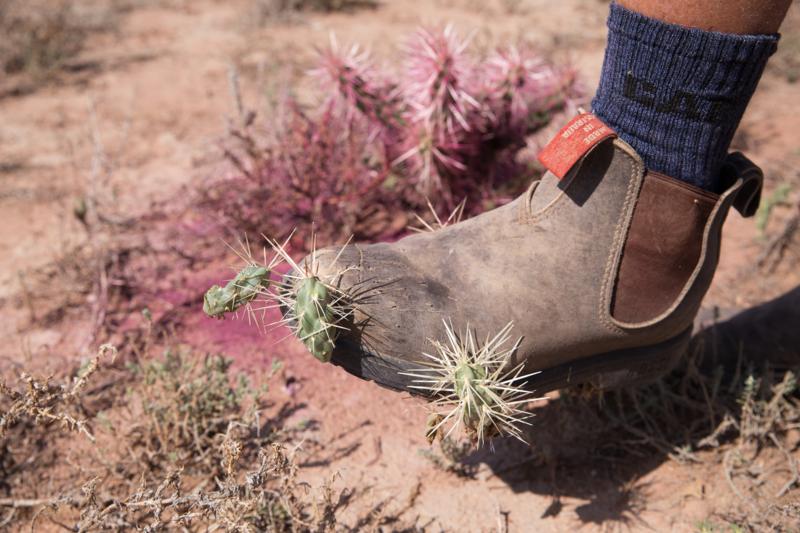
NSW Crime Stoppers, Local Land Services and the NSW Department of Primary Industries have joined forces to address the trading of illegal cactus species.
Cactus plants are popular potted and garden plants. They have an appealing aesthetic, are easy to grow, thrive on neglect and are a regular sale item at community markets.
But some cactus plants like prickly pears cause nightmares for farmers and their sharp spines and barbed bristles can injure people as well impale, infect, blind, and even kill native animals, pets, working dogs and livestock.
When the plants get out into the environment, they can form impenetrable walls of vegetation that prevent animals from grazing and from accessing shade and water. These types of cacti also reduce the natural beauty of our parks and outdoor areas.
That�s why it is illegal to sell or swap them in NSW. NSW Crime Stoppers has initiated a new campaign calling for the community to help with two simple messages: Do not sell or swap these plants and if you see them being sold, report it.
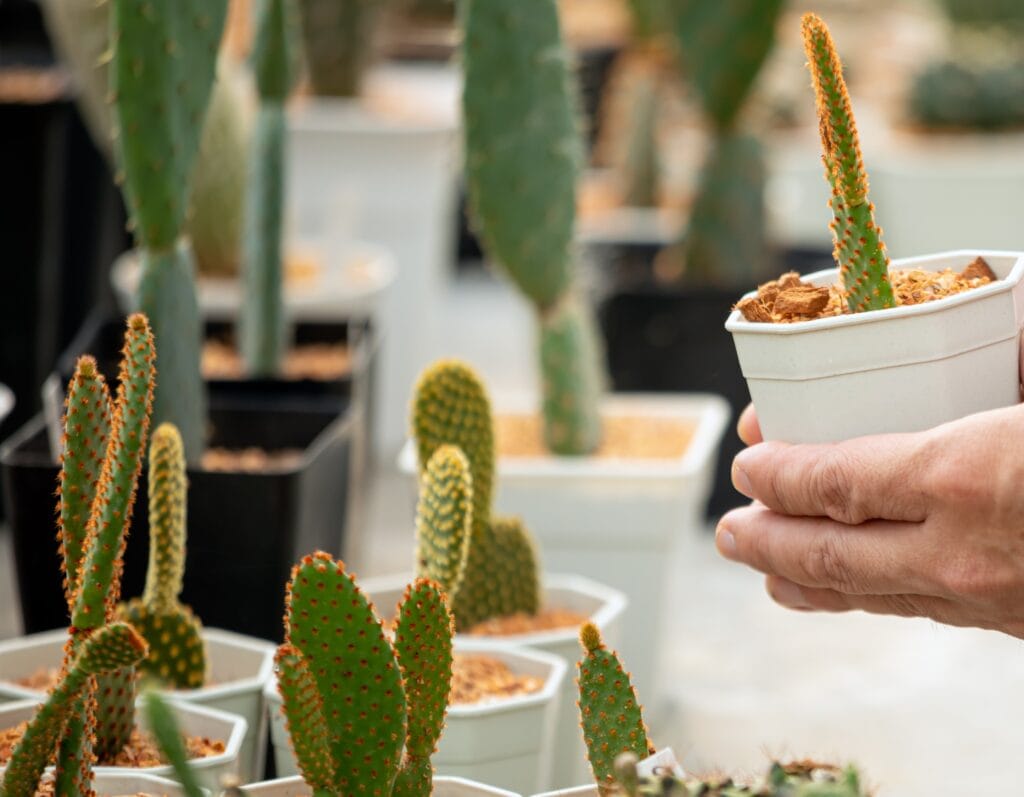
There are more than 27 species of prickly pear cacti known to be in Australia. Eve�s needle, bunny ears, smooth tree pear and blind cactus are all illegal cactus that are still being traded.
�Many people may not know the cacti they see for sale at their local market or online are illegal to sell or trade so we have developed information to help people identify the types of cacti,� says NSW Crime Stoppers CEO, Mr Peter Price AM.
�If you have one of these plants do not sell or swap them. These cactus infestations cost millions of dollars to control. Stopping the spread is the only way to minimise the devastating impact these plants can cause.�
�Community awareness and action will be crucial in preventing the prohibited selling or swapping of these plants. We are asking anyone who sees these plants being sold online to report it to NSW Crime Stoppers.�
NSW Crime Stoppers CEO, Mr Peter Price AM.
�Spring usually brings an increase in plant sales, so we are appealing to the public to be on the lookout for trade of these plants, particularly online.
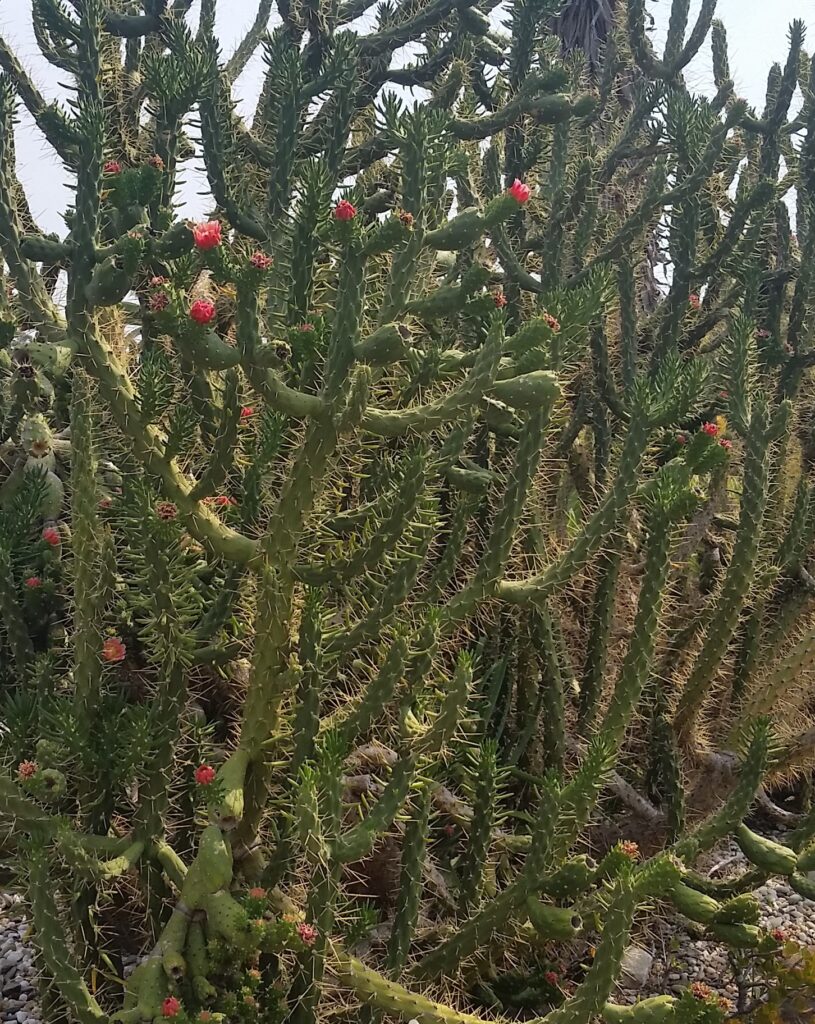
On the spot fines of $1,000 and penalties of up to $220,000 can apply if someone is found to be selling or swapping certain types of cacti in NSW.
If you see these illegal cactus being sold, please report it to NSW Crime Stoppers on 1800 333 000 or report online at https://nsw.crimestoppers.com.
For a complete list of plants prohibited from sale or swap in NSW click here. A fact sheet is also available at https://nsw.crimestoppers.com.au/
Tiny insect eats into Hudson pear cactus
Farmers in north west NSW have a new weapon in their battle to control the spread of a prickly noxious weed that�s become a major biosecurity threat.
With its Triffid-like prolific growth and barbed spikes that snare any creature unfortunate enough to walk into it, Hudson pear is like something out of a horror movie.
This Mexican prickly invader was first detected in Australia in the Lightning Ridge area during the late 1960s. It is believed to have spread from a cactus nursery at Grawin and has since infested around 100,000 hectares of land in the north west.
According to mapping by NSW Local Land Services, the cactus has the potential to invade up to 112 million hectares of arid land across Australia.
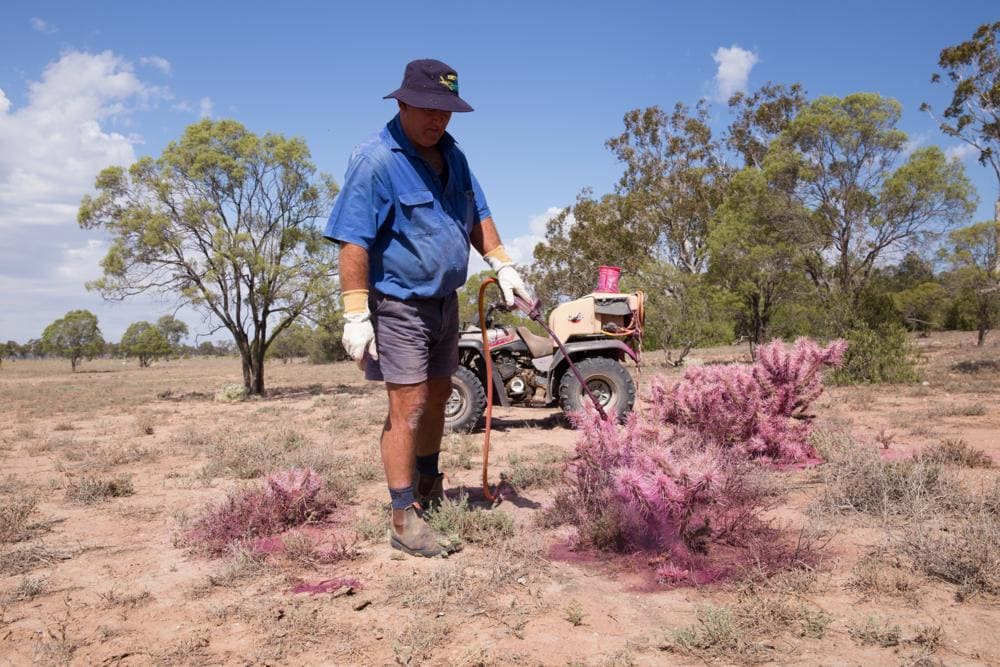
Farmers and the NSW Department of Primary Industries (DPI) are pinning their hopes on a tiny insect to halt its spread and repeat the most famous example of biological control of weeds in Australia � the use of a cactus moth, Cactoblastis cactorum, to control prickly pear cactus.
The cochineal insect agent Dactylopius tomentosus was first released for the biocontrol of Hudson pear in November 2017 in NSW and Queensland and got straight to work on destroying its first targets.
With help of around 20 landholders, The DPI has been mass-rearing the biocontrol agent in laboratories so it can be released in bulk to attack the Hudson pear population.
Farmers provide Hudson pear samples in exchange for samples infested with cochineal to plant back in an impacted area and let the bugs do their work.
A total of 33,900 Hudson pear samples infested by the insect have been reared and released at 44 field sites in Western NSW. The insect has established populations at all the release sites and is eating its way through the prickly invader.
The company InFarm developed an Artificial Intelligence (AI) approach for detecting Hudson pear from aerial imagery, which is being used to assess spread and impact of the agent over large areas and across inaccessible terrain.
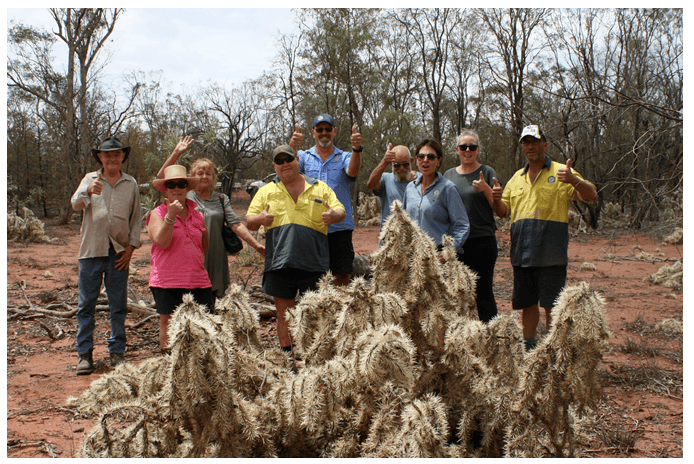
The not so nice Hudson Pear
The cactus is named after a resident of the Lightning Ridge area, Mr Hudson, who first brought the problem to the attention of the then Prickly Pear Destruction Commission and the cactus is still referred to as Hudson pear.
Hudson pear has particularly vicious spines which are capable of penetrating footwear and even vehicle tyres.
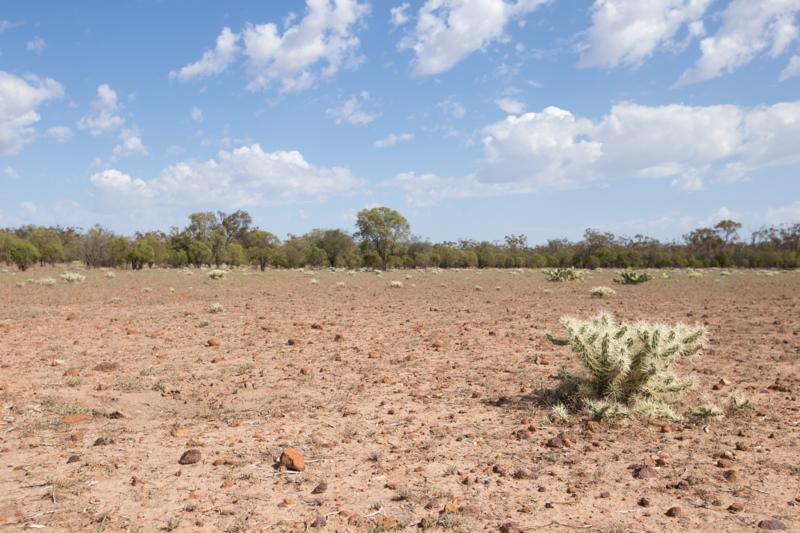
Spines are encased in a detachable sheath which may remain embedded in a wound even after the body of the spine is removed. The spines are capable of causing serious injury to humans, livestock and working animals such as horses and dogs and may present a severe impediment to mustering operations.
Hudson pear also poses a threat to native fauna and has caused the deaths of native animals such as koalas. Infestations of Hudson pear can also displace native flora and may impact on biodiversity.
Prolonged and extreme drought conditions, followed by bushfires, floods and a year of good rainfall for most parts of NSW, have seen an explosion of weeds. Read more here



